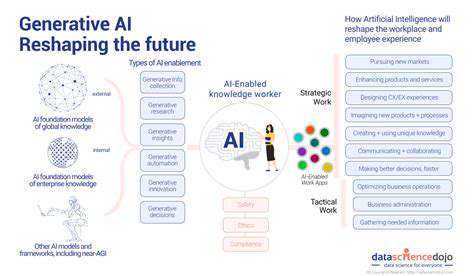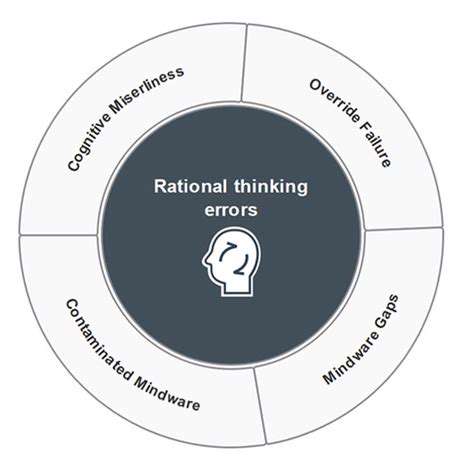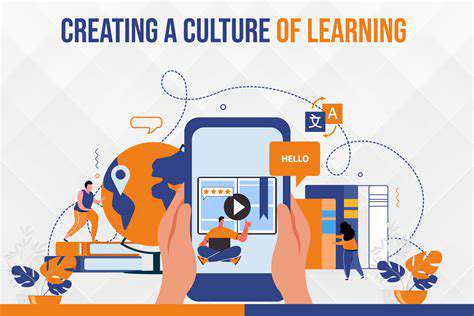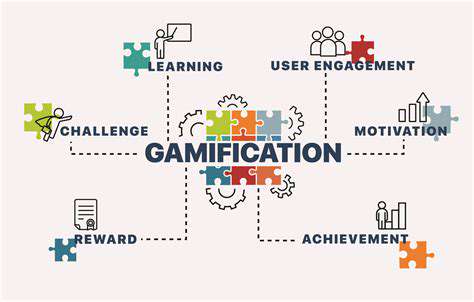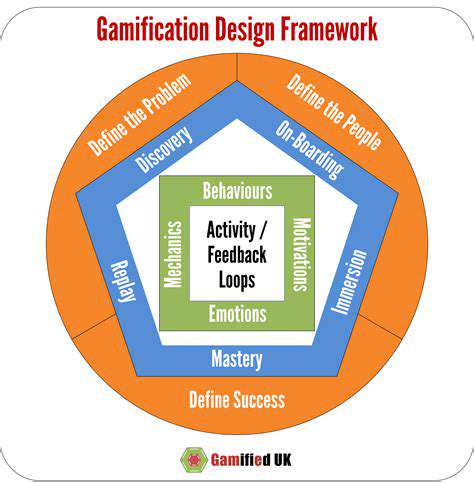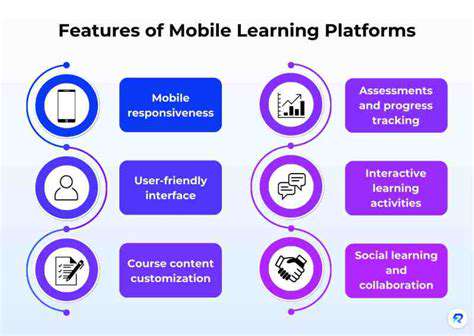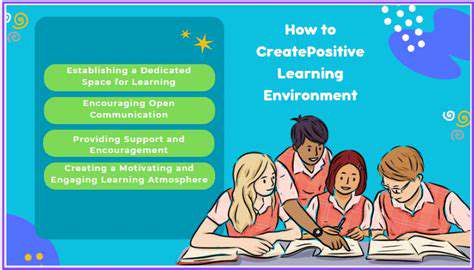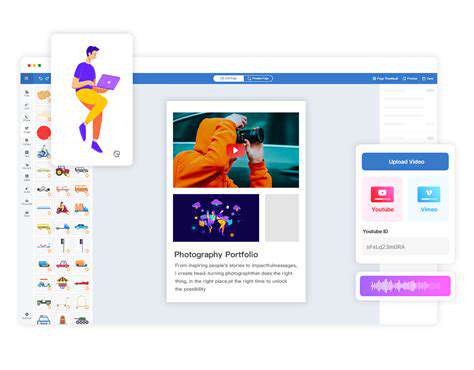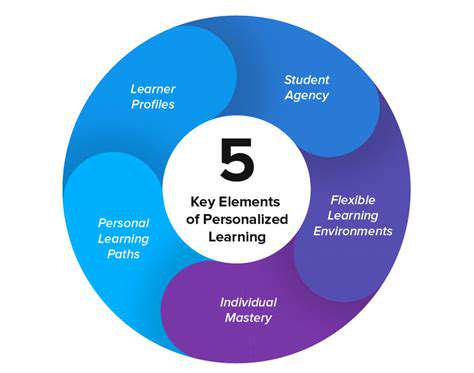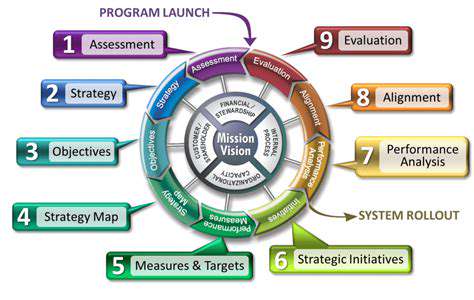The Rise of Microlearning on Mobile Devices
Unpacking the Microlearning Trend
Microlearning, a rapidly evolving approach to knowledge acquisition, is characterized by its focus on delivering concise, focused learning experiences. This approach contrasts sharply with traditional methods, which often involve lengthy lectures or comprehensive modules. Microlearning modules are designed to be easily digestible, allowing learners to absorb specific information quickly and apply it immediately. This targeted delivery is particularly beneficial in today's fast-paced world, where individuals often require specific knowledge or skills to address immediate challenges.
The key to microlearning's effectiveness lies in its ability to cater to fragmented attention spans. By breaking down complex topics into smaller, more manageable chunks, microlearning minimizes cognitive overload and promotes deeper comprehension. This approach fosters a more active learning environment, encouraging learners to engage with the material and retain information more effectively. The brevity of microlearning modules also makes them highly accessible, allowing learners to integrate learning into their busy schedules.
The Practical Applications of Microlearning
The applications of microlearning are diverse and far-reaching, extending beyond traditional educational settings. In corporate training, microlearning modules can be used to deliver essential skills training, address specific performance gaps, and provide just-in-time support for employees. This approach allows companies to tailor training to the specific needs of their workforce, increasing efficiency and improving productivity. Further, in professional development, microlearning can provide focused training on specific software tools, industry updates, and new technologies.
Beyond the corporate sector, microlearning is increasingly popular in online education and personal development. Short, engaging videos, interactive quizzes, and bite-sized articles are all examples of microlearning formats. These formats are designed to cater to the needs of learners who prefer concise, self-directed learning experiences. The flexibility and accessibility of microlearning make it a powerful tool for continuous learning across diverse domains and industries.
Microlearning's emphasis on practical application is a significant advantage. By focusing on specific skills and knowledge, learners can immediately apply what they have learned to real-world situations. This hands-on approach fosters a stronger understanding and enhances retention. The ability to quickly access and apply learned information is crucial in today's dynamic environment, making microlearning an invaluable tool for both professional and personal development.
The use of microlearning in various industries and sectors underscores its adaptability and effectiveness. From onboarding new employees to upskilling existing staff, microlearning's ability to deliver focused, practical knowledge makes it a valuable asset.
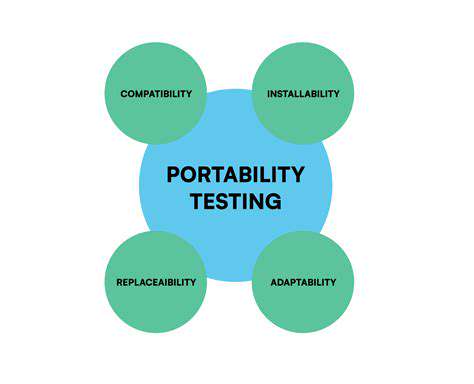
Personalized Learning Experiences: Tailoring to Individual Needs
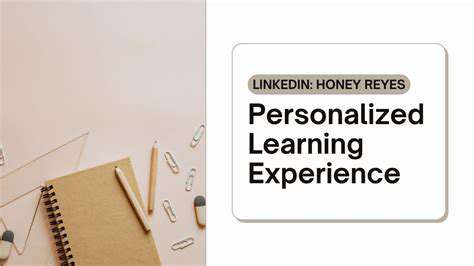
Tailored Instruction
Personalized learning experiences prioritize the unique needs and learning styles of each student. This approach moves beyond a one-size-fits-all curriculum, recognizing that each learner progresses at a different pace and has different strengths and weaknesses. By adapting instruction to individual needs, educators can foster deeper understanding and engagement. This personalized approach also allows for a more effective use of time, as students are directed toward activities that most benefit them.
Individualized learning pathways are crucial, allowing students to focus on areas where they need extra support while exploring topics that particularly excite them. This tailored approach not only boosts academic performance but also cultivates a stronger sense of ownership and motivation within the learning process.
Adaptive Learning Technologies
The integration of adaptive learning technologies plays a vital role in creating personalized learning experiences. These technologies can assess student understanding in real-time and adjust the difficulty and content of lessons accordingly. This dynamic feedback loop ensures that students are constantly challenged at a level that promotes optimal learning.
Adaptive platforms often provide customized learning paths, allowing students to progress through materials at their own pace. This flexibility is especially beneficial for students who need more time to grasp complex concepts or who are eager to delve deeper into areas of interest. The personalized nature of adaptive learning platforms enhances student engagement and knowledge retention.
Differentiated Instruction Strategies
Differentiated instruction strategies are essential components of personalized learning. Educators utilize various methods to cater to diverse learning styles and needs. This includes providing different avenues for students to demonstrate their understanding, such as presentations, projects, or written assignments. This approach acknowledges that different students learn best through different modalities, strengthening their overall learning experience.
By providing choices and varied learning materials, educators can better meet the needs of each student. This approach allows students to actively participate in their learning process, leading to a more fulfilling and effective educational experience. Teachers can also use differentiated instruction to address diverse learning needs, ensuring that all students receive the support they require to succeed.
Student Agency and Choice
Empowering students with agency and choice is a key element of personalized learning. This involves giving students a voice in their learning journey, allowing them to select topics, activities, and projects that resonate with their interests and aspirations. This sense of ownership motivates students to take greater responsibility for their learning.
By incorporating student choice and preferences into the learning process, educators foster a more engaging and enriching learning environment. This approach encourages active participation and intrinsic motivation, ultimately leading to a more profound and lasting understanding of the subject matter. Students who feel a sense of ownership in their learning often exhibit greater enthusiasm and commitment to their educational pursuits.
Read more about The Rise of Microlearning on Mobile Devices
Hot Recommendations
- The Gamified Parent Teacher Conference: Engaging Stakeholders
- Gamification in Education: Making Learning Irresistibly Fun
- The Future of School Libraries: AI for Personalized Recommendations
- EdTech and the Future of Creative Industries
- Empowering Student Choice: The Core of Personalized Learning
- Building Community in a Hybrid Learning Setting
- VR for Special Education: Tailored Immersive Experiences
- Measuring the True Value of EdTech: Beyond Adoption Rates
- Addressing Digital Divide in AI Educational Access
- Preparing the Workforce for AI Integration in Their Careers
